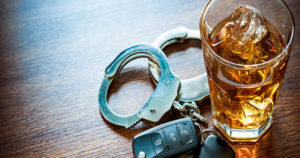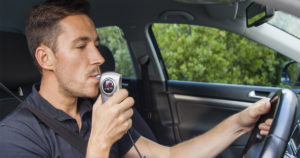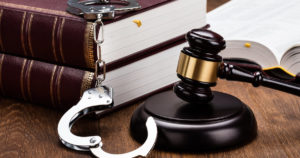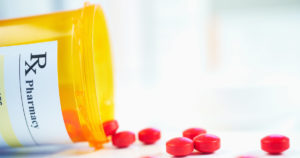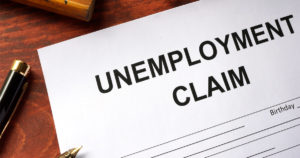New Jersey DUI/DWI Lawyers
New Jersey has some of the most severe drunk driving penalties in the country, which increase for repeat offenders, motorists who are under the age of 21, and those who refuse to take a breathalyzer test. Although drunk driving is a serious offense, it is not considered a crime in the state of New Jersey. Rather, driving while intoxicated or under the influence (DWI/DUI) is considered a traffic offense. Motorists facing a DWI/DUI charge are not entitled to a trial by jury, and a conviction is not eligible for expungement. In addition, a DWI/DUI conviction can result in thousands of dollars in fines, license suspensions, and even prison time.
Is There a Difference Between DWI and DUI?
Although DUI and DWI essentially mean the same thing, the main difference comes down to behavior versus blood alcohol content (BAC). DUI refers to behavior, whereas DWI refers to the driver’s BAC. For example, if a 140-pound woman drives home after having three glasses of wine at a bar and is rear-ended by another vehicle on her way home, the officer may smell alcohol on her breath and conduct a field sobriety test. However, if the test revealed that she had a BAC of over 0.09, because her blood alcohol was over the legal limit, regardless if she showed no signs of intoxication, she would be charged with a DWI instead of a DUI.
In the state of New Jersey, however, these two terms are interchangeable, and there are no separate offenses for DUI and DWI. Section 39:4-50(a) of the New Jersey Motor Vehicle Code states that prosecutors can pursue DWI/DUI charges against motorists who operate a motor vehicle while under the influence of alcohol, or who get behind the wheel of a car while having a BAC of 0.08 percent or more. It is important to understand that a motorist does not necessarily need to have a BAC above 0.08 percent to face a drunk driving conviction in New Jersey.
What are the BAC Limits in New Jersey?
The New Jersey Motor Vehicle Code states that having a BAC limit of 0.08 percent is considered legally drunk. However, there are actually five different BAC limits under New Jersey law, including the following:
- BAC limit of 0.08 percent: This establishes fault for DUI/DWI regardless of the level of driving impairment.
- BAC limit of 0.10 percent: This may result in additional fines, a longer driver’s license suspension, and other severe penalties.
- BAC limit of 0.15 percent: The driver may be required to install an ignition interlock device (IID) for a period of months, or even years after driving privileges are restored.
- BAC limit of 0.04 percent: Owners of commercial driver’s licenses may face DUI/DWI charges if operating a commercial vehicle while having a BAC of 0.04.
- BAC limit of 0.01 percent: According to New Jersey’s zero tolerance law, drivers under the age of 21 can be charged with DUI/DWI if they have any alcohol in their system.
Can I Refuse a Breathalyzer Test?
In the state of New Jersey, motorists are considered legally drunk if they have a BAC of 0.08 percent or higher. According to New Jersey’s implied consent law, if a motorist is arrested for DWI, they must submit to a breathalyzer test to determine the driver’s BAC. If a driver refuses the test, they will be fined up to $500 for a first offense and lose their license for seven to 12 months. A driver who refuses a test for a second time will face a two-year license suspension and up to $1,000 in fines. A third offense carries a 10-year license revocation and a $1,000 fine. Police officers must follow a set of rules when using the Alcotest device, the breathalyzer test used in New Jersey. The rules include the following:
- The officer may administer the Alcotest only if he or she has reasonable grounds to believe that the driver is under the influence of alcohol.
- The officer must let the driver know that he or she has the right to obtain a copy of the test results, and to receive a second BAC test from a qualified individual.
- If the driver refuses the test, the officer may not forcibly administer the test.
- The officer must inform the driver of the consequences of refusing to submit to the Alcotest.
A criminal defense lawyer will advocate for any motorist whose rights were violated by police during a DUI/DWI-related traffic stop. Drunk driving is illegal, but if a police officer violated the rules stated in the New Jersey Motor Vehicle Code, including those related to administering the breathalyzer test, an experienced lawyer may be able to help.
What are the Penalties in New Jersey for Drunk and Drugged Driving?
New Jersey has some of the toughest drunk driving penalties in the country. The severity of the consequence will depend on the seriousness of the offense, and whether the driver is a first-time or repeat offender. Effective December 1, 2019, a DUI/DWI law went into effect in New Jersey that requires all motorists convicted of a DUI to install an IID. The following provides a closer look at the specific penalties and charges that New Jersey motorists will face for a DUI/DWI conviction:
First offense: The consequences for a first offense will depend on the driver’s degree of intoxication. If the motorist had a BAC of 0.08 – 0.09 (Tier 1), consequences may include the following:
- Suspension of motorist’s license until an IID is installed
- Mandatory IID for minimum of three months
- Possible jail time of no more than 30 days
- Participation in the Intoxicated Driver Resource Center (IDRC) prevention program for 12 to 48 hours
- Fines and fees
Motorists with a BAC of 0.10 to 0.14 (Tier II) may face the following consequences:
- License suspension until the IID is installed
- Mandatory IID for the required three months, as well as an additional nine to 15 months after the motorist’s license has been restored
- Participation in the IRDC prevention program for 12 to 48 hours
- Possible prison term of up to 30 days
- Fines and fees
Motorists with a BAC of 0.15 or higher (Tier III) face the following consequences:
- Mandatory license suspension of up to six months
- Mandatory IID for the required three months, and for an additional nine to 15 months following license restoration
- Participation in the IDRC prevention program for 12 to 48 hours
- Possible jail time of up to 30 days
- Fines and fees
All first-time DUI offenders are subjected to the following mandatory charges:
- Fine of up to $500
- DWI surcharge of $125
- Up to $33 in court fees
- $50 to the Victims of Crime Compensation (VCCO)
- $100 to the AERF
- $100 to a drunk driving fund
- $1,000 annual automobile insurance surcharge for three years
- $75 to the Neighborhood Services Fund
Motorists who are convicted of a DUI/DWI in a school zone are subjected to additional fines of up to $800 and an additional 60 days of jail time. Driving privileges will also be suspended for one to two years.
Second offense: If a motorist is convicted of a second DWI/DUI offense within 10 years of a previous conviction, it is considered a repeat offense. These often carry stiffer penalties, including the following:
- Mandatory license suspension for up to two years
- Thirty days of community service
- Mandatory IID for an additional two to four years following the license restoration
- Participate in IDRC for up to 48 hours
- Prison term of up to 90 days
- Fines and fees
Motorists with a second offense are also subjected to the following fees:
- Fine of up to $1,000
- $125 DWI surcharge
- Court fees of up to $33
- $50 to the VCCO
- $280 IDRC fee
- $100 to a drunk driving fund
- $100 to the AERF
- $3,000 in automobile insurance surcharges over a three-year period
- $75 to the Neighborhood Services Fund
Third offense: Three or more DUI/DWI convictions within 10 years of a second conviction carry the most severe penalties, including the following:
- Up to a 10-year license suspension
- Prison term of 180 days
- Ninety days of community service
- Mandatory IID for up to four years following license restoration
- Fines and fees
A third DWI/DUI offense also comes with the following mandatory fees:
- Fine of $1,000
- $125 DWI surcharge
- Court fees of up to $33
- $50 to the VCCO
- $280 IDRC fee
- $100 to a drunk driving fund
- $100 to the AERF
- $4,500 in automobile insurance surcharges over a three-year period
- $75 to the Neighborhood Services Fund
Although the courts may impose the minimum penalties required by law, there are factors that may work in the defendant’s favor, resulting in a less severe punishment. Examples include the following:
- Good driving record
- Positive, respectful interaction with the police officers involved
- Low breathalyzer reading
- Rehabilitation efforts
- The adverse effect that the penalty would have on the defendant’s employment and family
Can I Be Arrested for Taking Prescription Drugs?
Like illegal drugs and alcohol, certain prescription medications and over-the-counter medicines can cause drowsiness and other side effects that impair a motorist’s ability to safely operate a car. It is entirely possible that a motorist will be charged with DUI of prescription drugs, particularly if he or she was swerving in and out of the lane, speeding, or any other unsafe driving behavior that would suggest to a police officer that a driver is impaired.
However, the police officer must prove that drugs were in the driver’s system, and that his or her level of impairment put other motorists at risk. If the police officer finds prescription drugs in the vehicle, the driver will be required to produce a valid prescription. There are two important steps that the motorist should take to mount a defense:
- Provide proof that he or she was following a doctor’s instructions for taking the medication.
- Offer an alternative explanation for the impaired behavior that was reported by the police officer.
How Can I Avoid Being Arrested for DUI/DWI?
The best way to avoid being arrested for drunk driving is to avoid drinking and driving. To reduce the risk of being arrested for drunk driving, keep the following in mind:
- Understand the risks of drunk driving. In addition to being illegal, drunk driving is extremely dangerous and can endanger others on and off the road.
- Remember the penalties associated with drunk driving. Fines, suspended license, and jail time are just a few of the penalties that drunk drivers face.
Other consequences of a drunk driving arrest can include losing a job, being expelled from school, and custody issues.
When a driver is pulled over, it is normal to feel nervous, or scared, particularly if the driver consumed a couple of drinks. Do not panic. Keeping the following tips in mind can help prevent a DWI arrest:
- Do not get out of the vehicle. Stay in the car unless otherwise instructed by the police officer.
- Stay calm. Be polite and respectful and answer all the police officer’s questions. Do not behave in a way that is hostile or antagonistic, as this will increase the chances of a DWI arrest.
- Take the breathalyzer test. Refusing to take the test will only make the situation worse and make an arrest more likely.
How Can I Avoid a DUI/DWI Conviction?
Depending on the circumstances, the severity of the accident, and whether it is the motorist’s first offense, a criminal defense lawyer will recommend the best legal course of action that will help avoid a drunk driving conviction. The following are examples of effective legal strategies:
- Cast doubt about the impairment. Establish reasonable doubt in the mind of the judge about the level of impairment. If the prosecution has copies of the BAC test results, the defendant’s lawyer may challenge the prosecution’s evidence by questioning whether the test was calibrated, if it was administered properly, or if there was a rise in BAC after getting pulled over.
- Suppress evidence. In some cases, the defendant may have grounds for having the prosecution’s evidence suppressed. For example, if the arresting police officer pulls a motorist over without probable suspicion, arrested a motorist without probable cause, or violated a motorist’s constitutional rights in some way, the resulting evidence may be inadmissible in a trial.
- Obtain proof of a false-positive BAC test. There are certain non-alcoholic beverages and other substances that can generate a false-positive BAC test result.
- Agree to plead to a lesser charge. Depending on the circumstances, and the likelihood of a conviction at trial, pleading to a lesser charge may be the best option. If the court approves the change in plea, it could result in less severe consequences.
- Avoid drinking and driving. This is by far the best way to avoid a DUI/DWI conviction.
New Jersey Criminal Defense Lawyers at Ellis Law Represent Those Facing DUI/DWI Charges
If you were charged with a DUI/DWI, do not hesitate to contact the New Jersey criminal defense lawyers at Ellis Law. Our skilled legal team will work closely with you to protect your rights and reduce or eliminate the charges against you. To schedule a free consultation, call us today at 732-308-0200 or contact us online.
Located in Freehold, New Jersey, we serve clients throughout East Brunswick, Toms River, Middletown, Jersey City, Neptune, Hudson County, Union County, Essex County, and Ocean County, as well as Brooklyn and New York, New York.


